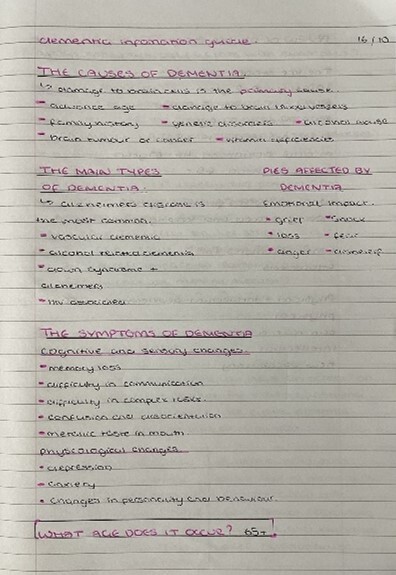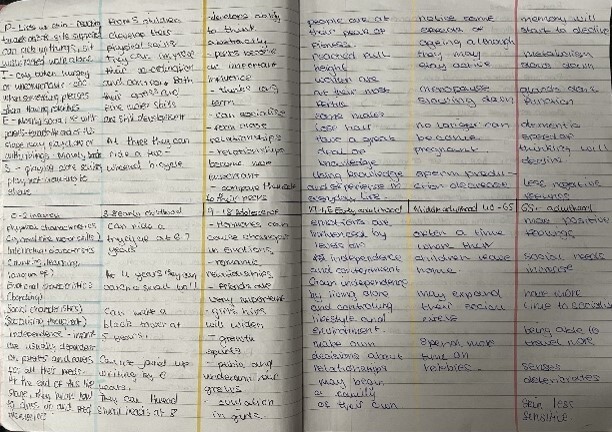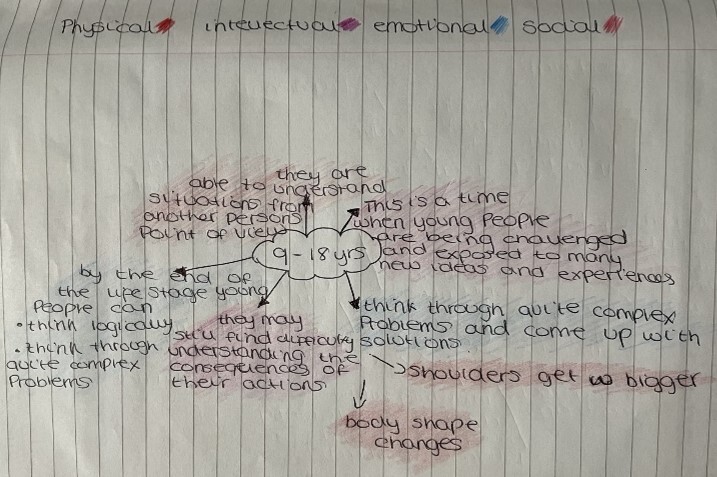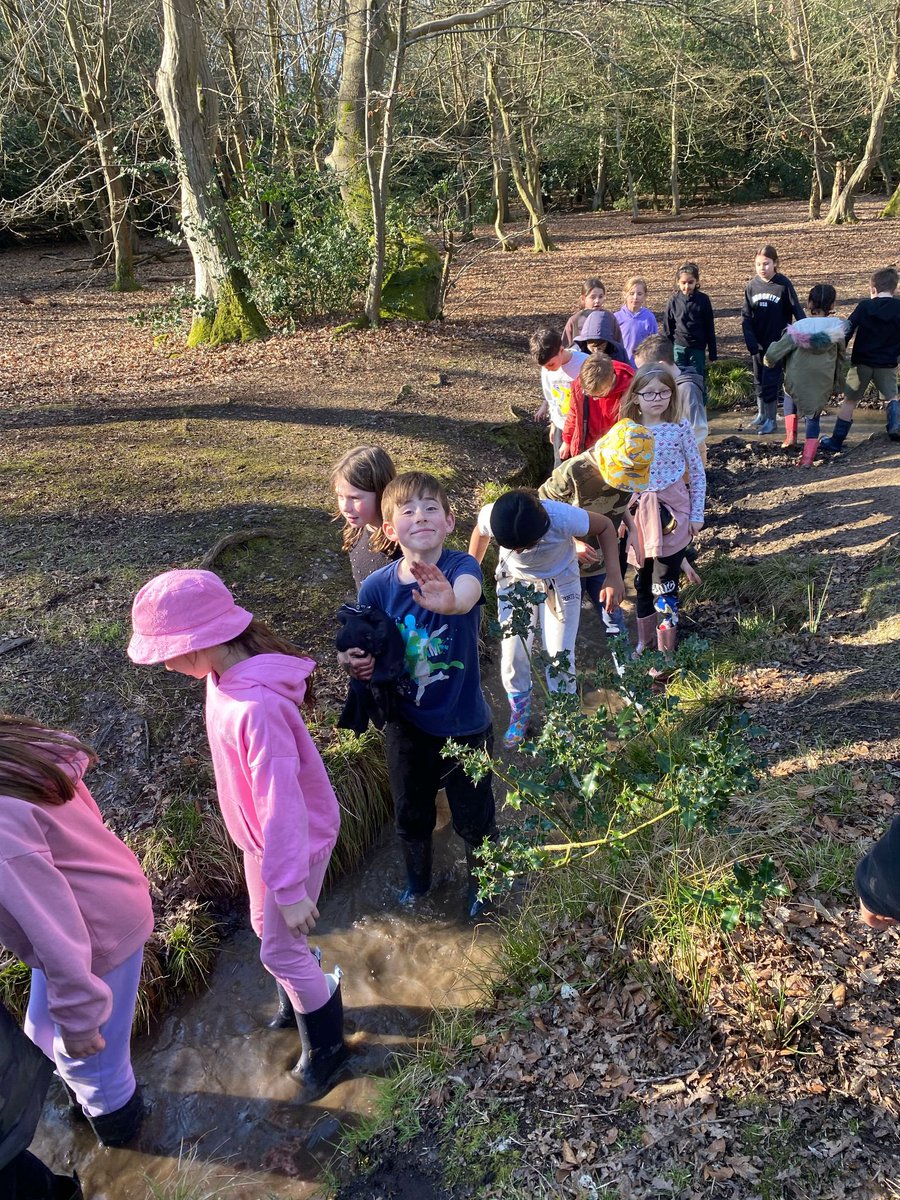Health and Social Care
Through studying health and social care, our students explore human development and learn to critically analyse how various factors affect how we can successfully and healthily live day-to-day. By exploring the care values, applying them to case studies and presenting their findings as part of a group project, students see the real-life application of their studies and develop the leadership skills necessary for further progression. Students gain an understanding of different health conditions and analyse data to curate an individual health plan that supports them to improve their own health and wellbeing, along with overcoming any barriers.
This course builds on and uses the knowledge and skills you learn in your core GCSE qualifications, such as English. It will complement the more theoretical aspects covered by GCSE science by allowing you to apply your knowledge and skills practically in a vocational context. As a result, health and social care is a very popular options choice, especially for students that are interested in pursuing further study or a career in a health and social care setting.
KS4
The health and social care course develops students' social awareness and curiosity of the world around them, as well as their empathetic skills and abilities to provide context to other individual’s life experiences. Moreover, the course increases students’ independence and autonomy while developing their ability to reflect on their work and their own metacognitive skills. By exploring different cultures, students develop their social, moral and cultural skills, aspects that are underpinned by SCHOLAR.
Through studying health and social care, students develop their understanding of the different Care Values, facilitating progression to a career within any health or social care environment. Students are encouraged to undertake further research into the different settings and roles within those settings relating them to health conditions. Health and social care enables students to draw from case studies and undertake research that compliments their learning and teaches skills that will be used throughout their professional lives. These skills to increase students’ social awareness of the world around them and begin to challenge the way they perceive the world that we live in. By using a range of resources and external agency advice and guidance, students investigate health and well-being and identify the links between lifestyle choices and health. This encourages students to discuss and raise awareness of signs and symptoms of abuse, addiction, illness and mental health.
Throughout the course, learners incorporate digital technology of their iPads within their learning. This is seen in research tasks and when creating presentations that are then delivered to the rest of the class. Textbooks, articles and case studies are provided to students throughout the curriculum to support their learning and improve their literacy skills. Scenarios are linked to real-life circumstances to enhance students' social awareness around them and broaden their understanding of other individual’s perspectives and life experiences.
Across the course, students complete three main components: two are coursework modules and the third is an external exam that takes place in year 11. Each component covers a variety of Health and Social care topics.
Component 1: Human lifespan development
Learners investigate how, in real situations, human development is affected by different factors and that people deal differently with life events.
Component 2: Health and social care values and services
Learners study and practically explore health and social care services and how they meet the needs of real service users. They also develop skills in applying care values.
Component 3: Health and wellbeing
Learners study the factors that affect health and wellbeing, exploring physiological and lifestyle indicators and understanding how to design a health and wellbeing improvement plan.
Assessment:
The first two components are assessed internally and then externally verified by an examiner; the third component is an externally assessed exam.
The range of grades for the Health & Social care BTec Technical Award starts at a Level 1 Pass and extends to a Level 2 Distinction* with the Level 2 qualifications being equivalent to a GCSE.
Oracy is developed as they working independently, in teams and problem solve in a creative way, using oracy to discuss ideas and work with others.
|
|
Autumn |
Spring |
Summer |
|
Year 10 |
Understand human growth and development across life stages and the factors that affect it.
|
Understand how individuals deal with life events. |
Understand the different types of health and social care services and barriers to accessing them. Understand the skills, attributes and values required to give care. |
|
Year 11 |
Factors that affect health and wellbeing. Interpreting health indicators. |
Person-centred approach to improving health and wellbeing.
|
Exam preparation. |
Beyond GCSE
By achieving a Level 2 qualification students progress to a Level 3 course that then leads to a university course or training in a health or social care setting. Some learners may wish to build on an interest in human growth and development but take it in a different direction (at either Level 2 or Level 3) by studying for qualifications in Early Years education.
A variety of options are available beyond GCSE some of these are outlined below, but there are also foundation level courses that contribute towards half of an A-level qualification; alternatively, an Extended Diploma is equivalent to 3 A-levels.
- BTec Level 3 National extended certificate in Health and Social Care equivalent to 1 A-level
- BTec Level 3 National Diploma in Health and Social Care equivalent to 2 A-levels
- BA / BSc honours degree in Health & Social care
- Or another relevant degree discipline focusing on a particular area, such as Nursing or Social work.
Wider Curriculum and Careers
Approximately 3 million adults work in the health or social care sector in the United Kingdom. Health care roles include doctors, pharmacists, nurses, midwives and health care assistants, while social care roles include care assistants, occupational therapists, counsellors and administrative roles. Together they account for nearly one in ten paid jobs in the United Kingdom. Demand for both health and social care is expected to rise in line with the aging population. As a result, these professions they will continue to play an increasingly important key role in society.
Across the course, students engage in discussions and workshops with professionals such as therapists and counsellors, in order to better understand their roles and the routes taken into their career. Through school trips, students enhance their wider knowledge around the subject and gain additional perspectives from health care professionals. These trips include day visits, such as to the local care facilities and local hospitals. Students are also provided throughout the curriculum with relevant TV shows and films related to the subject content to increase their understanding and provide them with further perspective of those giving and receiving care in a variety of different aspects.
A qualification in health and social care can then lead on to further training to become qualified in one of the following job roles:
- Nursing/Midwifery
- Counselling
- Occupational therapy
- Youth work
- Social work
- Physiotherapy
- Nursery nurse roles
- Childcare
Useful Links
https://www.skillsforcare.org.uk/Careers-in-care/Think-Care-Careers.aspx
https://www.healthcareers.nhs.uk/working-health/working-social-care
Examples of our current students work:

























